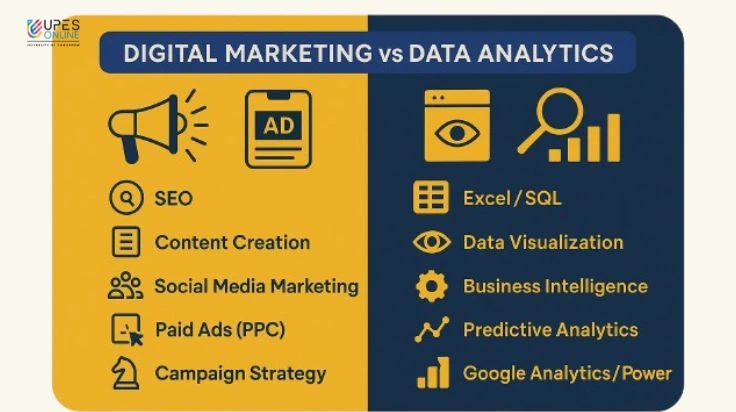Unlocking Concepts & Techniques in Oil Drilling & Completion

Oil drilling operations are essential in producing petroleum, an important energy source. Oil drilling involves drilling into the earth’s surface to reach the reservoir. We will discuss key concepts and methods in oil drilling and completion operations.
Drilling and completion operations are essential in the oil and gas industry, allowing for the extraction of valuable resources from the earth’s subsurface. These operations involve drilling wells and installing equipment to enable the safe and efficient production of oil and gas.
This article will explore key concepts and techniques in drilling and completion operations while churning out the best yield in oil and gas industry and its sub-outlets.
What is oil drilling used for?
The oil drilling process is how crude oil is removed from the earth’s surface. A hole must be drilled into the world with sophisticated equipment to access oil resources far below the planet’s surface.
Oil can be refined into various products, including gasoline, diesel fuel, and lubricants. Oil drilling is crucial in supplying the world with the energy it needs to run transportation, heat homes and buildings, and produce electricity.
Drilling Operations
Drilling operations are the first step in extracting oil and gas from the subsurface. This section will cover the key concepts and techniques involved in drilling operations.
Types of Drilling Rigs and Equipment
There are various types of drilling rigs and equipment, each with unique capabilities and applications. Some common types of drilling rigs include:
- Onshore drilling rigs
- Offshore drilling rigs
- Mobile drilling rigs
- Fixed drilling rigs
Drilling equipment includes drilling bits, collars, fluids, and casing. The selection of equipment depends on factors such as the type of formation being prepared, the depth of the well, and the desired production rate.

Key Concepts in Drilling: Drilling Fluids, Casing, and Cementing
Drilling fluids are essential in drilling operations, providing lubrication, cooling, and stabilization of the wellbore. The choice of drilling fluid depends on the type of drilled formation and the drilling conditions.
The casing is used to provide structural support to the wellbore and to prevent well collapse. Cementing is filling the space between the container and the wellbore with cement to secure the case in place.
Drilling Techniques: Directional Drilling, Horizontal Drilling, and Hydraulic Fracturing
Drilling techniques have evolved, thanks to advancements in oil drilling machine, to maximize production and efficiency. Drilling at an angle is used to access oil and gas reservoirs that cannot be reached vertically.
Horizontal drilling involves drilling horizontally through a formation to increase the well’s exposure to the reservoir. Hydraulic fracturing, also known as fracking, involves injecting fluid into the building to create fractures and increase the flow of oil and gas.
Completion Operations
Completion operations are the final stage of drilling operations, involving installing the equipment necessary for safe and efficient oil and gas production. This section will cover the key concepts and techniques involved in completion operations.

Types of Completion Equipment: Tubing, Packers, and Subsurface Safety Valves
Completion equipment includes tubing, packers, and subsurface safety valves. Tubing transports oil and gas from the wellbore to the surface.
Packers isolate and seal sections of the wellbore. Subsurface safety valves prevent the uncontrolled release of oil and gas.
Key Concepts in Completion: Perforating, Stimulation, and Sand Control
Perforating creates holes in the casing and cement that allow oil and gas to flow into the wellbore. Stimulation involves techniques such as acidizing and hydraulic fracturing to enhance the well’s productivity.
Finally, sand control prevents sand and other solids from entering the wellbore and interfering with production.
Drilling and Completion Safety
Safety is a critical consideration in drilling and completion operations. The oil and gas industry involves many hazardous materials and oil well drilling process, making safety procedures and regulations essential. This section will cover the critical safety considerations and techniques engaged in drilling and completion operations.
Safety Hazards in Drilling and Completion Operations
Drilling and completion operations involve many safety hazards, including well blowouts, fires, explosions, and exposure to hazardous chemicals. Workers are also at risk of falls, electrocution, and other hazards associated with heavy equipment.

Importance of Safety Procedures and Regulations in Drilling and Completion
Implementing safety procedures and regulations is essential in drilling and completion operations. Employers must provide appropriate safety training and personal protective equipment to their workers.
The Occupational Safety and Health Administration (OSHA) also sets rules and standards to ensure worker and environmental safety.
Risk Management Techniques in Drilling and Completion Operations
Risk management is essential in drilling and completion operations. Risk assessment and analysis are used to identify potential hazards and implement preventive measures.
In addition, risk mitigation techniques, such as safety systems and emergency response plans, are also implemented to minimize the impact of accidents and incidents.
Petroleum product availability increased by 4.30 percent from 214.33 MMT in 2016–17 to 223.54 MMT in 2017–18.

Conclusion
Oil drilling and completion operations are intricate procedures that require a wide range of tools and methods.
Understanding the major concepts and techniques and the oil drilling effects on the environment covered in this article is essential to know how oil is derived from the earth and how it can be done safely and responsibly.
UPES Online Admission Enquiry
Recommended Courses




Latest Blogs

Digital Marketing vs Data Analytics: Which Career Should You Choose?
Battle of skills: Digital Marketing vs Data Analytics—compare 2025 salaries, skills & job roles. Expert tips to choose your future career path!
Read MoreJun 15, 2025 I 12 mins
Why Should I Choose UPES Online? 10 Reasons Why
Explore why UPES Online stands out in online education. Learn about flexible learning, UGC-approved degrees, expert faculty & credible online programs. Enroll now!
Read MoreAug 21, 2025 I 5 min
Can Distance Learning Fully Replace Traditional MBA Education? Challenges & Limitations
Find out if distance learning can truly replace a traditional MBA. Learn key challenges, limitations, expert opinion & insights.
Read MoreSep 2, 2025 I 4 mins
Online MBA Capstone Projects and the Importance They Hold
Know the importance of online MBA capstone projects. Learn how they build real-world skills, boost career opportunities, & add industry value.
Read MoreSep 7, 2025 I 5 mins
UPES Online MBA vs Other Top Universities: Why Students Prefer UPES
Compare UPES Online MBA with other top universities. Know why students prefer UPES online over others. Check fee, flexibility, faculty, ROI, & career scope.
Read MoreOct 1, 2025 I 7 mins








